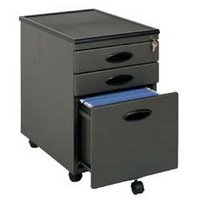First...What is a ROTH IRA?
A ROTH IRA is a type of investment account that is used for retirement. It is very similar to a 401K, SEP IRA, or a TSP in that the account is intended for withdrawal after retirement. First, the disadvantage. A ROTH IRA must be funded with AFTER-TAX dollars. What that means is that Uncle Sam gets to tax your money before you put it into the account.
So, if you make $100 and are in the 25% tax bracket, you can only contribute $75 of those dollars towards your ROTH IRA. This differs from a 401K or equivalent plan in that their contributions are made BEFORE-TAXES so is you were making a $100 contribution...$100 would go into the plan.
Why on earth would you choose to contribute to an account that taxes your money before it is contributed instead of an account that isn't taxed before contributions?
The answer isn't really that simple. A ROTH IRA withdrawal is 100% UNTAXED once you retire. That's right. Your $75 contribution can sit there and compound away until the day you retire. After that, you can make as many withdrawals as you want and EVERY SINGLE CENT is tax free. That is a huge advantage!!!
If you had but your untaxed $100 into a 401k or equivalent plan, your $100 would grow to $732.81 over 20 years if it had a 10% Return On Investment (ROI).
The problem? When you take that money out, it gets taxed at whatever your current tax bracket is. (you have increased your income enough to be in the 35% tax bracket) So, your $732.81 is really only $476.33 after taxes.
But what if you had put that '$100' into a ROTH IRA? You would have taken the initial tax hit of $25 so your actual account contribution would have only been $75. If that $75 compounded at 10% interest for 20 years, you would have $549.61...that is a difference of $103.28...and that is only with a $100 investment.
The ROTH IRA limits for 2007 are $4,000. you must be single making $110,000, married filing jointly making less than $160,000, or married filing separate making less than $95,000 to qualify.
I make less than $110,000. I am 24. What will the difference in my $4000 contribution be if I am in the 25% tax bracket now and will be in the 35% when I retire?
IF 401K 2007 Contribution: $5,333
Value in 2048 if compounding at 10% (wow...) : $316,373.96
TAXES AT 35%: $110,730.89
Actual value: $205,643.07
IF ROTH IRA: 2007 Contribution: $4000 ($5,333 taxed at 25%)
Value in 2048 compounding at 10%: 237,295.30
Taxes at 35%: ROTH IRAs don't get taxed!!!
Actual Value: $237,295.30
401K vs ROTH IRA = Difference
$205,643.07 237,295.30 $31,652.23
THE WINNER IS!!! ROTH IRA!!!
That is over a $30,000 difference just on one years decision on whether or not to contribute to a ROTH IRA vs a 401K. It only assumes 10% return (average) and if I were to make the same decision every year...the overall effect on the endgame account values would be very large.
But...if you have a 50%-100% company 401K match on ANY percentage of your salary, you should take it. I get a 100% match for 6% of my salary so I 'have' to contribute at least 6% of my salary before I can even consider contributing to a ROTH IRA...basic logic...because I have a GURANTEED 100% instant return on the first 6% of my salary that I contribute.
So, my rules are as follows:
1) Contribute enough to get whatever match your company provides in your TSP/401K/SEP IRA
2) Contribute any extra after that to max out your ROTH IRA. ($4,000 in 2007 or $5,000 if you are over 50)
3) After you have your match and your ROTH contribution, continue to max out your 401K plan or the equivalent.
It should take a while before accomplishing this. (I haven't...but plan on it eventually)
Open a ROTH IRA...TODAY!
1)Max your 401K plan to get the company match
2) Make as much of your your 2006 contribution as you can($4,000; $5,000 is over 50) before April 15th 2007
3) Focus on your 2007 contribution.($4,000; $5,000 is over 50)
Do this and you have taken your next step towards financial wealth.
Until next time, Thor
More information:
http://en.wikipedia.org/wiki/Roth_irahttp://www.fairmark.com/rothira/roth101.htmhttp://www.moneychimp.com/articles/rothira/rothintro.htmCalculator:
http://www.moneychimp.com/articles/rothira/rothcalc.htm


 Don't you hate it when you are filing your tax returns and you can't find the paperwork you need?
Don't you hate it when you are filing your tax returns and you can't find the paperwork you need?
 it is a folder or filing cabinet...but it can't just be a huge stack of papers and unopened envelopes.
it is a folder or filing cabinet...but it can't just be a huge stack of papers and unopened envelopes.





